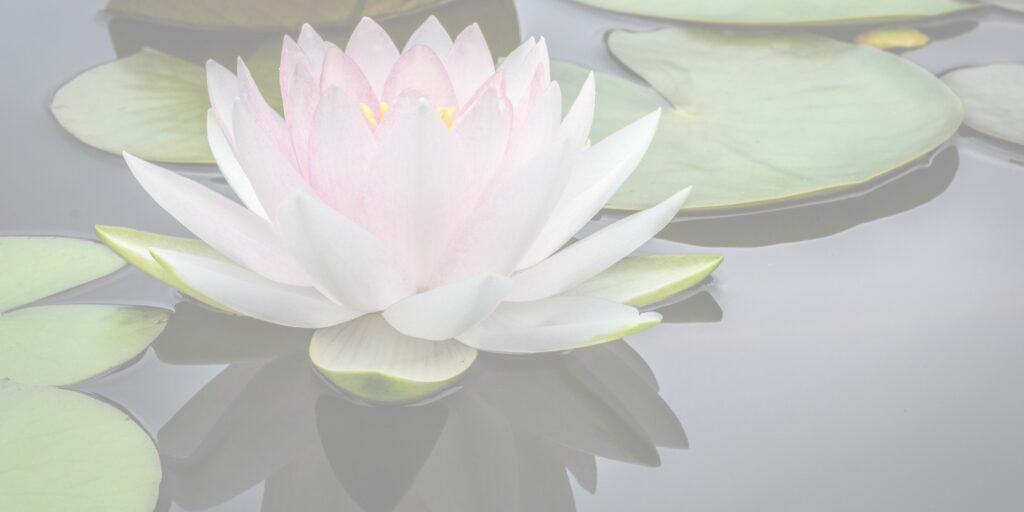The Power of Self-Trust in Nurturing Self-Kindness
.
Welcome back!
.
In my recent blog, I explored and discussed heartfelt topics around Random Acts of Kindness and Being the Pebble in the Pond, a journey I sincerely hope resonated with you.
To revisit those reflections, simply follow this link!
Let’s delve into the profound and transformative influence of self-kindness, an essential cornerstone of the broader concept of self-compassion.
A key piece is acknowledging the crucial relationship between self-kindness and self-trust, which forms the foundation of a resilient and nurturing relationship with oneself.
Without a foundation of self-trust, the authenticity of self-kindness can become fragile, overshadowed by doubt and skepticism that may impact the gentle, nurturing essence of self-compassion.
With that said, I’ll aim to:
- illuminate the subtle differences between self-kindness and self-trust compassionately,
- briefly discuss why they are inseparable companions in personal growth and
- offer practical exercises designed to cultivate both these invaluable qualities.
I hope these reflections resonate with you on your journey of self-discovery, self-kindness and compassion.

The Essence of Self-Trust
What is Self-Trust?
Self-trust is a consistent belief in one’s abilities, decisions, and instincts. It is the foundation of a healthy relationship with oneself, steering us through life’s challenges with a sense of security and purpose. When you trust yourself, you believe in your capacity to navigate the complexities of existence, make sound choices, and adapt to ever-changing circumstances.
“Self-trust is the belief that we can rely on ourselves
and that our intentions and actions are aligned.
When we trust ourselves, the space for self-kindness
naturally expands.”
Conversely, practicing self-kindness enhances our self-trust, creating a reciprocal and empowering cycle.
Cultivating self-trust is a lifelong journey, and the benefits extend far beyond personal well-being.
As you embark on this path, remember that building or rebuilding self-trust is a gradual process that requires patience, self-compassion, and a commitment to personal growth.
Why is Cultivating Self-Trust Important?
Enhanced Decision-Making:
- Self-trust empowers you to confidently make decisions. It is like a balm to constant second-guessing and hesitation, allowing you to act more decisively and assertively in various aspects of life.
Resilience in Adversity:
-
- Life is a series of ups and downs, and self-trust is a resilient anchor during challenging times. It supports the inner strength needed to weather storms, assisting the ‘bounce back’ from setbacks and learning from experiences.
Positive Self-Esteem:
- A strong sense of self-trust nurtures positive self-esteem. When you believe in your abilities, you naturally develop a healthy self-image, fostering a positive outlook on life.
Healthy Relationships:
- Trust in oneself is often mirrored in our interactions with others. Cultivating self-trust can contribute to healthier, more authentic relationships, allowing you to engage with others from a place of confidence and authenticity.

The Essence of Self-Kindness
Self-kindness involves treating oneself with warmth, understanding, and compassion.
It is the practice of extending the same gentleness to oneself that one would readily offer to a friend. In the absence of self-kindness, the journey of self-trust can become arduous, as harsh self-criticism may undermine the belief in one’s abilities.
The level of Self-Kindness you hold within shows its true colours in how you feel toward yourself in times of difficulty or perceived failure, where you may be overly critical or judgmental of yourself.
The journey and practice of Self-Kindness encourage you to extend empathy and compassion to yourself.
Neurobiology moment:
- By practicing self-kindness, you can trigger the release of oxytocin, a powerful hormone that enhances emotional resilience and well-being. This hormone also activates brain regions associated with reward and pleasure, reinforcing positive feelings and helping you build healthy habits. The release of endorphins encourages you to keep up with self-kindness behaviours.
Why Both Self-Trust and Self-Kindness are Indispensable
Fostering Resilience:
The symbiotic relationship between self-trust and self-kindness creates a resilient mindset. When facing challenges, self-trust provides the confidence to navigate, while self-kindness is a supportive cushion, offering comfort and encouragement during tough times.
Cultivating a Positive Self-Image:
Trusting oneself and treating oneself with kindness contribute to a positive self-image. This harmonious interplay enhances self-esteem and confidence, creating a solid foundation for personal growth.
Breaking the Cycle of Negative Self-Talk:
Self-trust disrupts the cycle of negative self-talk, replacing doubt with confidence. Simultaneously, self-kindness counters the tendency to be overly critical, fostering a compassionate internal dialogue that encourages personal growth and well-being. Remember that healing is a journey; cultivating self-kindness and self-trust takes time and patience. By being gentle with yourself and treating yourself with compassion, you can foster a strong foundation of self-trust that empowers you to navigate life’s challenges with resilience and confidence.
So, where do we go from here?

Three Practical Exercises
Starting with
Journalling
May these exercises be supportive stepping stones toward a more profound relationship
with yourself, where kindness and trust merge.
Friendly Reminder:
Journalling provides a safe space to acknowledge challenges, fostering a sense of self-trust through honest self-reflection. For those concerned about privacy, consider ways to ensure anything you write is stored safely or deleted/shredded.
Overall Recommendation:
Begin or end your day with a reflective practice. Acknowledge your achievements, express gratitude for your strengths, and set positive intentions for the day ahead.
Exploring Three Variations of Thought
for Enhanced Well-Being:
1. Reflective Journalling for Self-Awareness:
- Journalling your thoughts, feelings, actions, and experiences is a powerful catalyst for self-awareness.
- This fundamental exercise facilitates a deeper understanding of your inner world, forging a stronger connection with yourself.
- By capturing the nuances of your daily experiences on paper, you unlock valuable insights that contribute to personal growth and introspection.
2. Journalling Gentleness, Celebration, and Accomplishment:
Approach your journalling with a spirit of gentleness and embrace the opportunity to celebrate every accomplishment, no matter how small.
- Acknowledge your capabilities and the tangible outcomes of your efforts, reinforcing the belief that you can trust yourself to navigate the path to well-being.
- Reflecting on your achievements creates a positive narrative, and documenting these moments of success is tangible evidence of your competence.
- When acknowledging the impact of past experiences, infuse your reflections with supportive language, affirming your resilience and recognizing the potential influence of these experiences on your current goals.
**Use this exercise to remind yourself of your inherent strengths, laying a solid foundation for increased confidence in your abilities
3. Gratitude Journalling for Self-Appreciation:
In the context of this blog’s subject, consider incorporating gratitude journalling into your routine.
- Take the time to note down aspects of yourself that you genuinely appreciate.
- This practice cultivates a positive mindset and fosters self-kindness by directing your focus towards the elements of your being for which you are grateful.
- Beyond self-appreciation, general gratitude journalling remains potent, contributing to a heightened sense of well-being.
By exploring these variations of journalling, you embark on a journey of self-discovery, self-celebration, and self-appreciation.
Each form of journalling contributes uniquely to your well-being, fostering a holistic and positive relationship with yourself.

How to Improve Your
Self-Talk with Positive Affirmations
Having an affirming (positive) inner voice is truly important for building self-confidence and creating a kind relationship with yourself. By being mindful of your thoughts and using positive affirmations that match your values, you can cultivate a mindset that contributes to your overall well-being.
Affirmations:
- Make sure your affirmations reflect the kind of person you want to be. Creating affirmations like “I trust in…” or “I know that I can…” can reinforce positive self-talk and build self-confidence.
- Use self-compassionate affirmations like “I am worthy of love and healing” to help counteract negative self-talk, improve your self-concept, and make self-integrity.
Focusing on Your Strengths:
- Create affirmations that emphasize your strengths and abilities. Developing a consistent routine can help you develop a positive mindset and increase your confidence. Combining self-trust and self-kindness in your affirmations can be especially helpful in building resilience and empowerment.
Practicing Self-Care:
- Through positive affirmations and self-care activities, self-kindness can help regulate stress hormones and create a sense of safety and security. In trauma recovery, these practices can release oxytocin and soothe the heightened stress response associated with traumatic experiences.

Mindfulness
Getting started with mindfulness and cultivating self-trust and self-kindness involves incorporating simple practices into your daily routine.
Here’s a step-by-step guide to help you embark on this transformative journey:
Start with Short Mindfulness Exercises:
- Begin by dedicating a few minutes each day to mindfulness exercises. Perhaps this could include focused breathing, body scans, or guided meditations. Apps like Headspace or Calm offer beginner-friendly sessions or free videos on YouTube, for example.
Create a Mindfulness Routine:
- Establish a consistent mindfulness routine. Set aside specific times each day for your practice, whether in the morning, during lunch, or before bed. Consistency is key.
Non-Judgmental Awareness:
- When negative thoughts arise, acknowledge them without criticism. Cultivate a curious and compassionate attitude toward your inner experiences. Imagine how you would support a friend in a similar situation. Extend that same kindness and understanding to yourself.
Positive Re-framing:
- Notice your self-talk and replace negative statements with encouraging and understanding ones. For example, instead of saying, “I always mess up,” “say, “I am learning and growing from my experiences.”. “To overcome negative self-talk, imagine a supportive friend who offers positive feedback and encourages you to change the way you talk to yourself.
Realistic Goals for your practice:
- If inspired, set some realistic and achievable goals for your mindfulness practice. Gradually increase the duration as you become more comfortable. Celebrate your progress and accomplishments along the way.
Join a Mindfulness Community:
- Consider joining a local mindfulness group or an online community. Sharing experiences and insights with others can support and motivate your mindfulness journey.

Overall…Be Patient and Gentle with Yourself:
Understand that building mindfulness, self-trust, and self-kindness is a gradual process. Be patient with yourself and embrace each step of the journey. Recognize that it’s okay to face challenges and setbacks.
Mindfulness is a practice that can ebb and flow as you create a consistent practice. Embrace the imperfection with a dedication to wonder and integrate Mindfulness practices into daily life that will create or reaffirm a foundation for self-awareness, self-trust, and self-kindness.
Final Words
Cultivating self-trust and self-kindness is a transformative journey toward self-discovery and personal growth.
By intentionally practicing both elements, you can foster a resilient, compassionate, and fulfilling relationship with yourself. Self-kindness emerges as a guiding light in healing and recovery, illuminating the path toward self-trust and resilience.
May this exploration serve as a friendly reminder, or roadmap for those seeking solace and strength within, fostering a transformative journey toward healing and resilience. Both self-kindness and self-compassion are valuable for promoting mental well-being and resilience.
Seeking Professional Support:
If navigating self-trust feels challenging, seeking support from a trauma-informed professional can be invaluable and can provide guidance, validation, and tools tailored to your unique journey.
Remember that seeking support is a courageous act of self-trust. Trauma-informed professionals approach the therapeutic relationship with sensitivity and understanding, creating a space for you to explore and build trust in a safe environment.
***
Thank you so much for being here again. Your support means so much to me!
